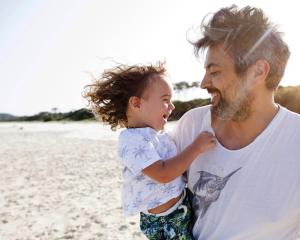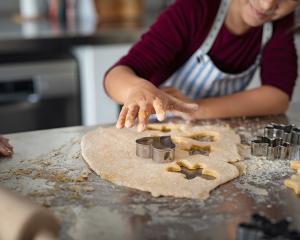Watch a playground full of children left to their own devices and you will see them running, climbing, pushing and shoving, throwing, jumping, and waving sticks around, and hear lots of screaming and laughter.
Throw in some adults and we're likely to hear: ''Don't do that'', ''Get down from there'', ''Put that stick down''.
While it's very important to take basic safety measures and to protect our children from major harm, growing up is about learning by experience.
Recently, some school principals responded with some anxiety to new workplace health and safety laws, fearing they might need to close down their playgrounds and end other outdoor activities.
And not so long ago I read of a local authority in England that cut down a stand of chestnut trees because the conkers posed a risk to children looking for them in the grass underneath.
To my mind being hit on the head by a falling conker is one of life's little experiences: you'll either decide to stop collecting them or give your head a rub and carry right on.
I remember learning how garden rakes can give you a nasty bang in the face if you leave them lying the wrong way.
I learnt that weak tree branches aren't great for swinging on, cats will scratch, asphalt isn't particularly kind to the knees when you come off your bike, long grass hides branches that trip you up, barbed wire tears your clothes and an old wooden fence is likely to collapse under you when climbed to reach a neighbour's apples.
Today, Dad might sue the neighbour or set some statutory authority on to him for having an unsafe fence.
Back then, I learnt about climbing fences safely and the physical and verbal dangers inherent in stealing apples.
More and more we're restricting our children's activities.
Certainly, the world is a bigger, faster-moving and seemingly more violent place, but, as Norwegian early childhood researcher Ellen Sandseter argues, risky play is critical in motivating children to learn.
By exhilarating children, it exposes them to things they fear, so they can learn to cope and master new skills.
And while fear protects them from situations they aren't ready to handle, thrill encourages them to keep striving.
It worries me that our future is likely to be in the hands of people whose childhood experience is about as real as the television programmes they watched and the PlayStation games they played.
They won't have pushed themselves, found their limits, and experienced the rough-and-tumble joys of childhood.
We have become too risk-averse.
Yes, children are dependent and vulnerable, but there is nothing to be gained by being overprotective and much to be lost.












